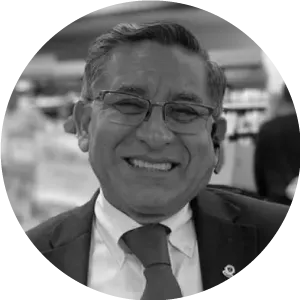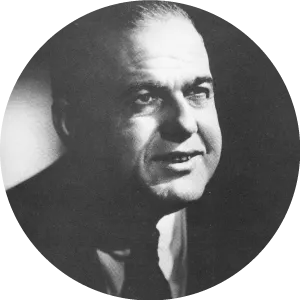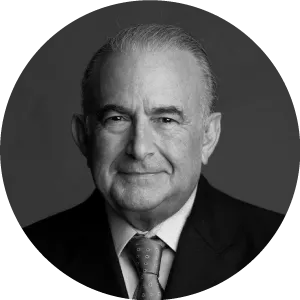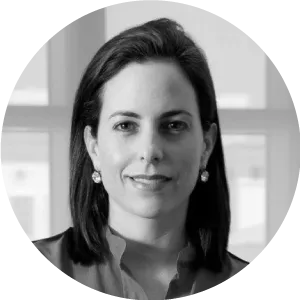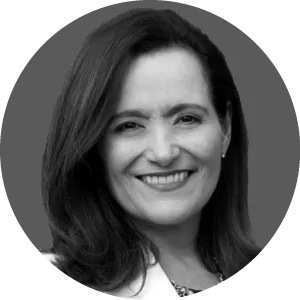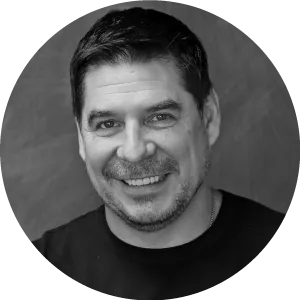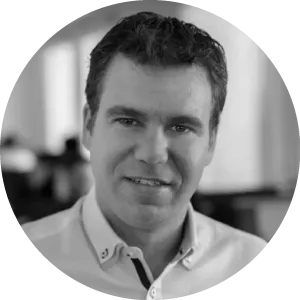Creativity is everywhere, and there’s no lack of it in Latin America, where so many forms of creative expression are welcome.
(In case you’re wondering, this is a continuation of our entrepreneur series. We’ve already covered the most creative black entrepreneurs in the world in addition to some of the best entrepreneurs in Canada, Japan, and the US!)
Let’s learn about the most creative entrepreneurs in Latin America.
Sofía Vergara
Sofía was first discovered walking a beach in Columbia. She wasn’t sure whether she wanted to pursue that career path, but her Catholic schoolteachers gave her permission to go ahead with the opportunity. Her first commercial was at age 17 for Pepsi.
After an unimaginable personal blow – the murder of her big brother – Sofía Vergara moved to the US from Colombia in 1998. However, her Latin American heritage will always be a strong part of who she is – she rose to fame in the US for her work on Modern Family as Gloria Delgado-Pritchett.
Today, she’s known as an entrepreneur (clothing, furniture, accessories, and the list goes on), actress, and one of the most influential Latin women in Hollywood.
Beto Perez
Remember Zumba – the dance craze that swept throughout the world? If so, you can thank Beto Perez – the Columbian man who started Zumba by accident.
Before the age of six, Beto loved to dance. When he turned 14, his mother was shot in the leg by a robber, and he had to work to support them. After working several jobs, Beto got to do his dream job: teaching dance.
Then, one day, he forgot his usual music and had to improvise using a mixtape of Latin American music. At the age of 15 or 16, what could have been a disaster for him turned into a huge opportunity: people loved it! They came in droves. Even Shakira wanted to do Zumba.
In 1999, Beto moved to the US and created Zumba with two of his friends. The rest is history.
Carlos Castro
Growing up in El Salvador, Carlos’ family had no money, and his parents had very little education. Because of this, his father always stressed the importance of hard work, getting a good education, and helping others.
It took two attempts to live in the US because the civil war in El Salvador was so dire: “I was seeing dead people every day on the way to work.” Carlos made his way to Washington, DC. His wife joined him, and he eventually obtained a work visa.
Castro is responsible for more than Todos supermarket (his main claim to fame); he also managed a construction company, became a real estate agent, and learned tax preparation to help other immigrants to the US.
Jordi Muñoz
Boredom can be a great motivator. At least, this was the case for Mexican Jordi Muñoz, whose boredom while waiting to get a Green Card propelled him to play with chips and controllers, experimenting with code, and learning how to do things on the computer.
One day, he stumbled upon DIY Drones, a forum for drone enthusiasts. He found a wealth of information there – libraries of code that could be developed and adapted to every need and specs for electronic components.
Eventually, his experiments caught the attention of Chris Anderson, Editor of Wired magazine. Chris contributed to Jordi’s efforts, and Jordi manufactured 40 drones by hand. Jordi’s company would become known as 3D Robotics – a company which is now estimated to be worth $33 million dollars in annual revenue.
Marcos Galperin
This Argentine entrepreneur came from a family that owned one of the world’s largest leather companies, SADESA.
While he studied at Stanford, he read a case study for eBay with fellow students Hernan Kazah and Selleo Tolda. They wanted to found MercadoLibre, a company that would use a business model like eBay for commerce in Latin America.
Their opportunity hit when John Muse, a private equity manager, addressed his class. The three students volunteered to give him a lift to the airport and approached him with their idea, securing their first investor.
Today, MercadoLibre is one of the biggest companies in the region and is often referred to as the Amazon of Latin America, with a net worth of about $5.82 billion.
Diego, Gustavo, and Adriana Cisneros
In 1929, Diego Cisneros founded Cisneros Group after obtaining the right to market and sell Pepsi products in Venezuela. Two decades later, his son Gustavo founded Venevision, which would eventually become the most popular private TV channel in Venezuela.
In the late 90s (after Hugo Chavez was elected president), Gustavo moved to the Dominican Republic. In 2000, Cisneros Group moved to Florida, and in 2009, his daughter, Adriana, served as the vice chairman and director of strategy.
Adriana became the CEO in 2013 and has contributed to the business’s further success. Cisneros Group now works in the media, interactive, real estate, and products & services industries. The Cisneros family were avid art collectors and donors, giving over 100 pieces to art museums in 2016.
In 2019, Cisneros Group was worth $1.1 billion. Gustavo recently passed away, leaving the company in good hands with Adriana.
Gabriel Puliatti
Peruvian Gabriel Puliatti was interested in code from a young age, hacking into systems with ease. In 2014, he began to work in the sales department at Scrapinghub, eventually becoming the VP of Business Development there.
In April 2016, Gabriel founded Emptor, a Peru-based ID verification and background check company. The brand focuses on providing security and fraud identification, with the goal of becoming the #1 solution for contracting, transactions, and scalability in Latin America.
It’s clear that Puliatti cares a great deal about what he does. He can do many things that you’d expect a CEO to do – generate sales, collaborate with teams, etc. – but he also enjoys helping with coding work and data processing tasks at Emptor.
Geisha Williams
This Cuban American businesswoman was born Geisha Jimenez, but at the age of give, migrated to the US after her father (a political prisoner) was released. Her father worked several jobs to provide for his family, and at one point, the family owned a grocery store.
Once Geisha finished earning her bachelor’s degree from the University of Miami, she worked for Florida Power & Light, then joined Pacific Gas and Electric Company (PG&E) in 2007. In 2017, she became the first Latina CEO of a Fortune 500 company; even more notable, she was the first and only Latina CEO of a Fortune 200 company.
In Florida and California, she became adept at crisis leadership, working in states where natural disasters were common. In 2019 (amidst some criticism), Geisha left PG&E, and is currently a board director of the Bipartisan Policy Center and a trustee of the California Academy of Sciences.
Marcelo Claure
Bolivian Marcele Clauro is a true entrepreneur and visionary, with several successful ventures and business pivots credited to his name. His childhood was marked by several moves: he was born in Guatemala, then moved to Morocco at two years old, and then to the Dominican Republic to spend most of the rest of his childhood in Bolivia. As an adult, he would continue to carry a restless spirit of innovation and growth.
In 1997, he founded Brightstar, a wireless service company that became the largest Hispanic-owned business in the US for six years. He sold the company to join Sprint in 2014, leading a “turnaround” for the company and overseeing its merger with T-Mobile.
Since February 2023, Marcelo has become the chair of the Latin American operations of Shein. Marcelo is also known for his philanthropic efforts: at both Brightstar and Sprint, he launched initiatives to provide computer access to students.
Federico Vega
Brazilian Federico Vega graduated high school in 1999, and then took a cycling journey across the continent. During that experience, he spent a lot of time at truck stops and learned the struggles most truckers deal with.
Federico worked in finance for five years after college, then founded Transportar Online in 2010, a site where people could list items they needed to ship and where transporters could place bids on shipments.
In 2013 he sold the business and founded CargoX. The company became an “Uber for trucks,” with the mobile app successfully connecting truck drivers with large brands who needed their supplies shipped. In 2019, Federico opened its first VIP lounge for truckers, equipped with a kitchen, TVs, WiFi, showers, laundry facilities, and gas.
The company rebranded as Frete.com in 2021, and at the time, was valued at $1 billion.




